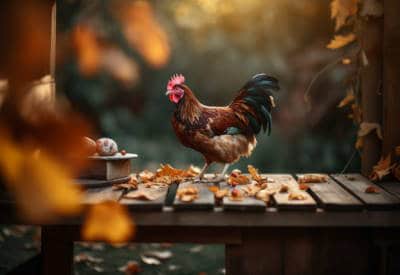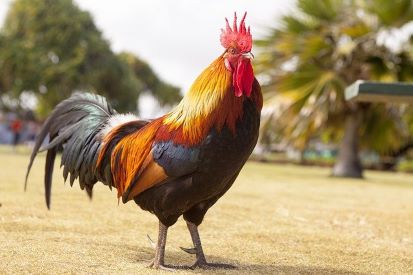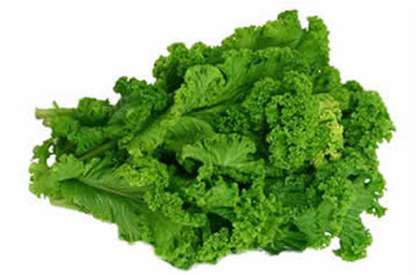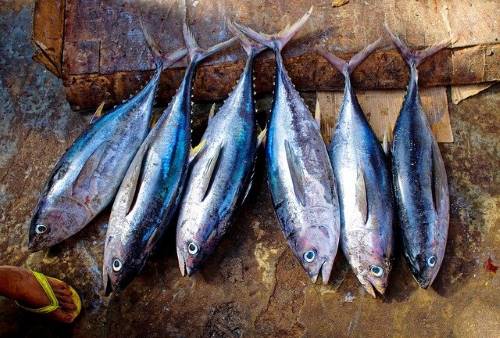Have you ever found yourself wondering what treats your backyard chickens might enjoy? I have, especially after witnessing the eclectic range of foods they’ll gobble up. One question that recently crossed my mind was, can chickens eat shrimp? Yes, shrimp, those scrumptious seafood delights that complete our summer barbecues.
I set out on a journey to answer this peculiar question. After all, it’s not something you’d typically associate with chicken feed. But the answer surprised me: yes, chickens can indeed eat shrimp. However, it’s not as simple as tossing a bag of frozen shrimp into your chicken coop. There’s much to consider to ensure this seafood treat can be a healthy addition to your chickens’ diet.
In the following article, we will explore the fascinating dynamics of a chicken’s dietary needs, the nutritional profile of shrimp, and the pros and cons of including shrimp in your chicken’s diet. Whether you’re a seasoned chicken owner or a curious newcomer to the poultry keeping world, this detailed guide should offer valuable insights into your feathered friends’ nutritional world.

Understanding Chickens’ Diet
Chickens aren’t too fussy about what they eat, which can be a blessing and a curse for chicken keepers. But what constitutes a balanced diet for a chicken? Let’s take a look.
Basic Nutritional Requirements of Chickens
A healthy chicken diet is a balanced mix of grains, proteins, greens, and grit. Grains, usually in the form of layer pellets or crumbles, are a mainstay that provides necessary carbohydrates.
Proteins, essential for feather growth and egg production, can come from various sources like mealworms, grubs, and even leftovers from your kitchen. Greens are another key component, while grit (sand or small rocks) aids digestion.
Common Feed Ingredients for Chickens
Commercial chicken feed typically contains a combination of corn, soybean meal, and a mix of vitamins and minerals. This is designed to provide a balanced diet for the chickens, but you can supplement it with other foods. Chicken owners often provide fruits, vegetables, and table scraps as added treats.
The Role of Treats and Supplements in Chickens’ Diet
Treats and supplements can be critical in maintaining a chicken’s health. They can enhance the nutritional value of the main diet, add variety to the chicken’s meals, and provide a fun way for keepers to interact with their birds. However, they should make up at most 10% of the chicken’s diet.
[ChickenAffiliate]
The Natural Foraging Behavior of Chickens
Chickens are natural foragers, and their dietary preferences reflect this. Let’s explore their foraging habits a bit more.
Chickens as Omnivores: What It Means
As omnivores, chickens can eat both plant and animal matter. In the wild, or when free-ranging in your backyard, they will scratch and peck at the ground, looking for anything tasty to fit into their beaks.
Examples of Foods Chickens Forage in the Wild
Their diet in the wild can consist of various seeds, greens, fruits, insects, and small animals like mice or lizards. They’ll eat it if it’s edible, and they can catch it or find it.
Influence of Foraging Habits on Diet Choices
These foraging habits significantly influence what chickens can and will eat. They tend to enjoy a variety of foods and are usually willing to at least try anything that looks like food to them.
An Overview of Shrimp as a Food Source

Shrimp is a tasty treat many species enjoy, but can it serve as a treat for chickens too? Let’s dive deeper into what shrimp brings to the table.
Nutritional Profile of Shrimp
Shrimp is a high-protein, low-fat food rich in minerals like iodine and contains Omega-3 fatty acids. These nutrients make shrimp a healthy food choice for many animals, including humans.
Health Benefits of Consuming Shrimp
Shrimp offers potential health benefits due to its high-quality protein and low-fat content. It’s also a great source of selenium, an antioxidant that can help fight inflammation and promote heart health.
Common Risks Associated with Shrimp Consumption
However, there are risks involved with consuming shrimp, including potential allergies, high cholesterol, and exposure to toxins and pollutants if the shrimp are not sourced from clean waters.
Can Chickens Eat Shrimp: The Facts

So, the question of the hour: Can chickens eat shrimp? Let’s break down the facts.
Potential Benefits of Shrimp for Chickens
Given the high protein content and beneficial minerals, chickens might benefit from eating shrimp. The protein can aid egg production and feather growth, while minerals like selenium can contribute to overall health.
Possible Health Risks and Considerations
However, chickens might face some risks if they eat shrimp. For instance, if the shrimp is not properly cooked or is sourced from polluted waters, it can contain harmful bacteria or toxins. Overfeeding protein-rich foods like shrimp can also upset a chicken’s nutritional balance.
Existing Scientific Evidence and Studies
There is limited scientific research specifically about chickens eating shrimp. However, it’s known that chickens can safely eat a variety of meats and seafood. As long as the shrimp is cooked and offered in moderation, it is generally safe for chickens.
Preparing Shrimp for Your Chickens

So, you’ve decided to let your chickens have a taste of the sea. Here’s how to safely introduce shrimp into their diet.
Safe Shrimp Preparation Steps
Firstly, ensure the shrimp is thoroughly cooked to kill any potential bacteria. Avoid using spices or seasonings, as these can harm chickens. Let the shrimp cool down before offering it to your chickens.
Tips on Serving Shrimp to Chickens
Shrimp can be served whole or chopped into smaller pieces to make it easier for your chickens to eat. Observe your chickens when they’re trying it for the first time to ensure they can easily eat it.
Signs Your Chickens Enjoy or Dislike Shrimp
Chickens are pretty clear about their food preferences. If they gobble up the shrimp quickly and then look around for more, you can be confident they liked it. If they peck at it and then walk away, shrimp might not be their favorite treat.
Alternative Treats and Supplements for Chickens

What if shrimp doesn’t turn out to be a hit with your feathered friends? Don’t worry; there are plenty of other options.
Common Treats Chickens Enjoy
Chickens typically enjoy fruits like berries, melons, and apples. Vegetables are popular treats, including leafy greens, carrots, and pumpkins. Many chicken keepers offer their flock mealworms or earthworms as a protein-rich treat.
Safe Seafood Options for Chickens
You might consider fish if you want to keep up the seafood theme, but shrimp isn’t working out. Cooked, deboned fish can be a good source of protein and Omega-3 fatty acids for chickens.
Tips for Introducing New Foods to Your Chickens’ Diet
It’s best to start small when introducing any new food to your chickens. Offer a small amount and watch how they react. Remember that treats should only make up a small portion of their diet. Also, monitor your chickens for any signs of discomfort or illness after they try a new food.
How Often Can Chickens Eat Shrimp?
Like any other treat, shrimp should not be a major part of a chicken’s diet. But how often is ‘in moderation’? Let’s dive into that.
Chickens should only be fed shrimp once or twice a week at most. This frequency allows your chickens to enjoy this special treat without disrupting their dietary balance. Remember, the mainstay of a chicken’s diet should be a balanced poultry feed designed to provide all the nutrients they need.
Shrimp, like other treats, should only supplement this main diet. Also, observe your chickens after feeding shrimp and adjust the frequency or portion size as necessary.
Shrimp Shells and Chickens
When preparing shrimp for your chickens, you might wonder: What about the shells? Can chickens eat those too? The answer is yes but with some reservations.
Shrimp shells are not toxic to chickens and can be a source of calcium, which is beneficial for egg-laying hens. However, shrimp shells can be hard for chickens to digest. There’s also the consideration of where your shrimp is sourced from. The shells may carry toxins that could harm your chickens if the shrimp are not from clean, pollutant-free waters.
As a result, while chickens can eat shrimp shells, removing the shells might be best before feeding them to your chickens. If you decide to offer the shells, observe your chickens closely to ensure they are not having difficulty digesting them.
What Other Seafood Can Chickens Eat?

Shrimp isn’t the only seafood that can add a bit of maritime flair to your chickens’ diet. Other options like fish, salmon, tuna, and minnows can also be great. However, just like shrimp, these should be offered carefully and in moderation. Let’s dive deeper into these options.
Fish
Fish can be a wonderful treat for chickens, offering a high protein punch and beneficial Omega-3 fatty acids. The fish should be cooked and deboned before feeding it to your chickens to avoid any risk of choking or bacterial infection. As with all treats, feeding fish in moderation is important as part of a balanced diet.
Read More: Can Chickens Eat Fish? Uncover The Surprising Benefits
Salmon
Salmon, a type of fatty fish, is a particularly good source of Omega-3 fatty acids, which can promote healthy feathers and egg production. Again, the salmon should be cooked and deboned before being offered to your chickens. Be aware that salmon has a stronger smell than many other foods, and some chickens may not be fans!
Read More: Can Chickens Eat Salmon? Unraveling The Mystery Of Seafood
Tuna
Tuna can be another good seafood choice for chickens. It’s rich in protein and contains various beneficial vitamins and minerals. However, due to the high levels of mercury that can accumulate in tuna, it should be offered sparingly. As always, ensure the tuna is cooked and thoroughly deboned.
Read More: Can Chickens Eat Tuna? Unveiling The Truth And Risks
Minnows
If you’ve ever watched chickens around a pond, you might have noticed them snapping up tiny fish like minnows. These small fish can be a fun and nutritious treat for your flock. If you’re feeding minnows from your pond, offering them raw is usually safe. However, if they’re from an unknown source, cooking them first to eliminate potential parasites is best.
Read More: Can Chickens Eat Minnows? 5 Great Benefits
Can chickens eat shrimp – final thoughts
We’ve navigated the vast sea of knowledge to answer our burning question: can chickens eat shrimp? The answer, as we’ve seen, is a resounding yes. But it’s more than just a yes or no question. We’ve discovered that shrimp can be a nutritious treat for our feathered friends, full of protein and beneficial minerals. But remember, it’s crucial to cook it thoroughly and serve it in moderation.
So, the next time you have some leftover shrimp from your summer barbecue, don’t toss it out. Consider sharing it with your clucky companions. But remember to check if they like it first! Chickens, like us, have their individual food preferences, and shrimp might not tickle every chicken’s fancy. Introducing new foods to your chickens can be a fun and rewarding adventure, whether shrimp or any other treat. Just keep it balanced, observe your chickens’ reactions, and enjoy the journey!
